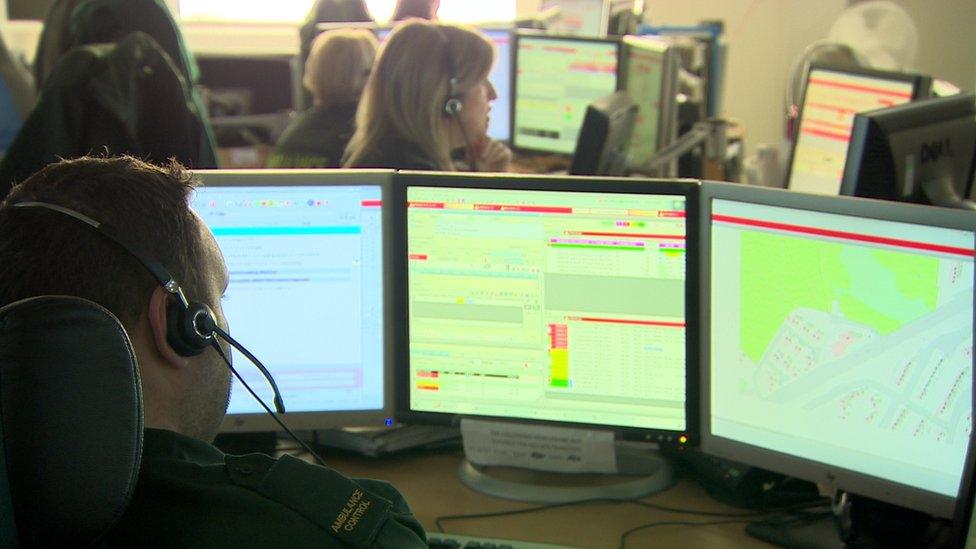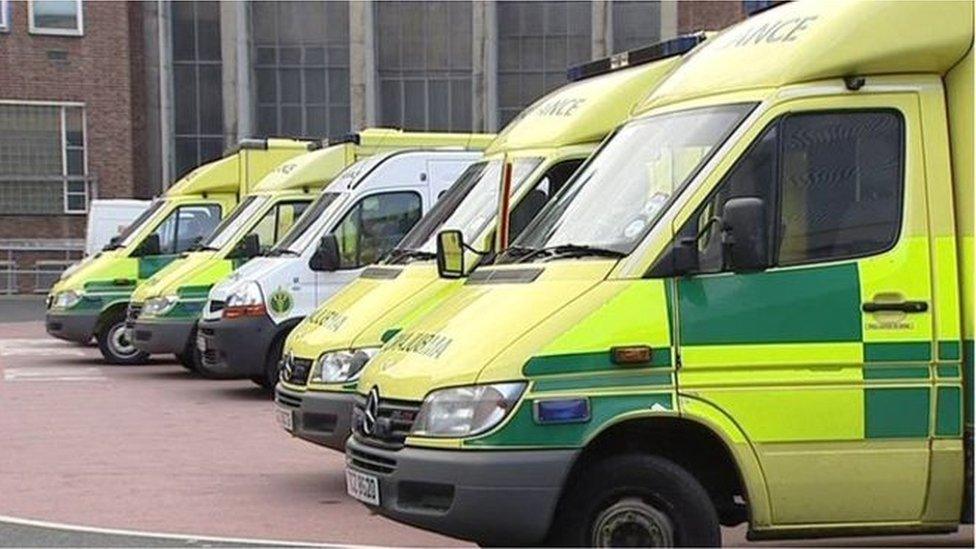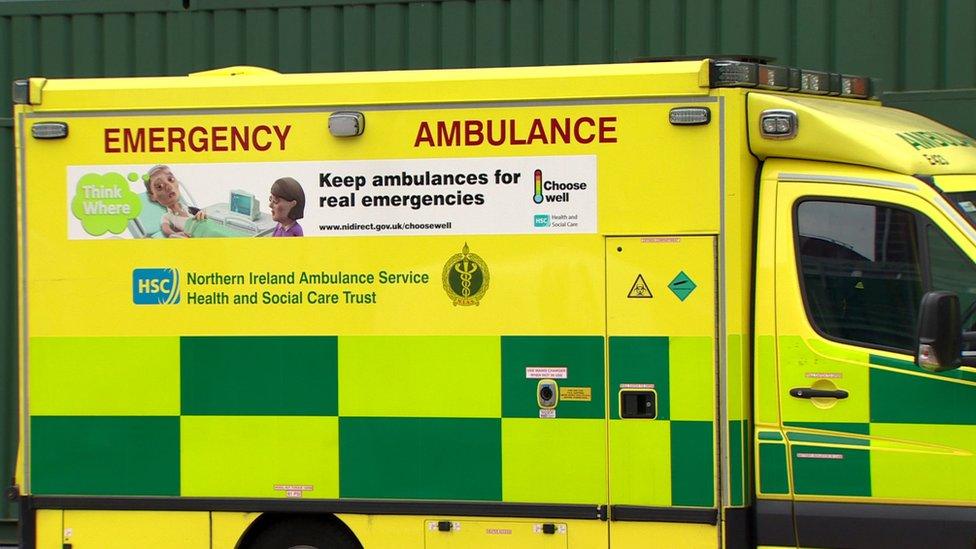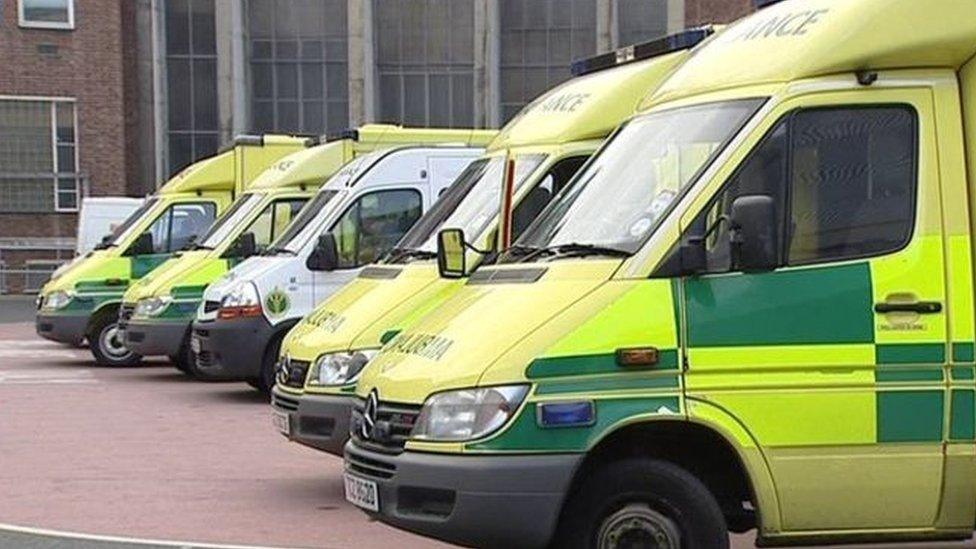The paramedic: A gruelling and relentless job
- Published

A BBC Freedom of Information request has shown patients in 'life threatening' conditions in Northern Ireland are waiting longer for an ambulance
Paramedics regularly go the extra mile to help people - often that means saving lives.
It's a tough profession which can incorporate the roles of medic, social worker and even friend.
But it's becoming even more challenging as there are not enough staff working on the front line.
This fact is reflected in the figures acquired by the BBC via Freedom of Information.
Take response times - since 2013 they have risen by nearly three minutes.
'Gruelling and relentless'
The percentage of calls over 12 minutes is also up by 30%.
The level of staff sickness has increased and all this against a backdrop of more 999 calls.
Put simply, according to some members of staff, the gruelling and relentless nature of this job is not always recognised by management including some in the Department of Health.
The BBC was given full access to the service and staff over a two-day period. According to management they wanted to be open and transparent. The Royal Victoria Hospital also offered myself and a cameraman full access.

Paramedics can often end up working 14 hours on a 12-hour shift
While all staff were encouraged to talk an provide interviews, some told me afterwards by telephone that they were too afraid.
A recurrent theme during those chats was a feeling of being disengaged from their employer.
Staff also said there were not enough of them to provide the required cover.
Staff leave, if honoured, is often agreed at the last minute; meal breaks are usually unpredictable resulting in food being carried around in the vehicle and a 12-hour shift can regularly drift into 14 hours or more.
Downtime
Not enough staff can mean that despite attending a serious incident there is no downtime - instead the crew must simply move on immediately to the next call.
Management explained they were doing their best in difficult financial times.
While they would love to have 20 crews operating in Belfast each day - the reality is that between 08:00 and 14:00 there are just eight ambulances and four fast response vehicles covering Belfast.

An appeal urging the public to keep ambulances for 'real emergencies'
Those figures increase slightly as the day goes on.
Management said they fully appreciated the commitment of staff and rejected any accusation that they were uncaring.
Undoubtedly like the other health trusts, the Ambulance Service is feeling the pinch. It has had to make cuts and is now arguing that it has to change the way it responds to emergency calls in order to do its job properly.
Efficiency or cuts?
After all, those targets were set more than 40 years ago in 1974.
If changing how the service responds to emergency calls provides a more efficient service, then management should be applauded.
But if change is as a result of cuts then the public and staff are being short-changed.
- Published30 November 2016
